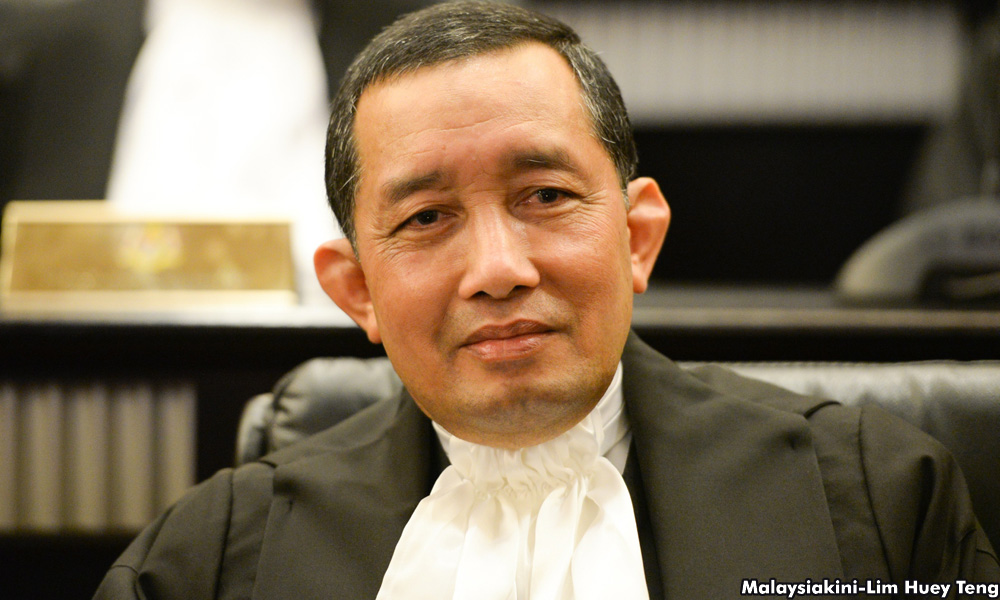LETTER | How about a female attorney-general?
LETTER | It was recently reported that the current attorney-general (AG) had expressed his intention not to serve out the rest of his contract, which ends in March next year, if he is to be replaced.
Three names, apparently all are judges, have been presented to the prime minister for consideration before he advises the King on who should be appointed as the next AG.
The trio, all male, comprises one judge from the Court of Appeal and two from the High Court.
At a time when there is potentially a huge economic displacement and changing climate that is causing increasing levels of uncertainty in the country, the government is attempting to present itself as an “antidote” to these concerns.
Murmurs of concerns and initial discontent about the new government’s ability and effectiveness as the “antidote” have begun and apparently, it is gaining momentum.
To aid whatever efforts the government is planning to do, Putrajaya should also not forget the solution that can aid and complement its efforts in addressing the above issues is the rule of law- a powerful, stabilising and moderating influence – is implemented and enforced fairly with no fear or favour.

The government must ensure that the office of the highest law enforcer in the country discharges his or her responsibilities to the highest standards, and in turn, earn public trust, whose support is critical to the rule of law.
Assuming the plans by Minister in the Prime Minister’s Department (Law and Institutional Reforms) Azalina Othman Said to separate the role and responsibilities of the
AG and public prosecutor receive the go-ahead, the office of the AG and public prosecutor will not be trusted if it is viewed as a bastion of entrenched elitism, exclusivity and privilege - oblivious to changes in society and to the needs of the most vulnerable.
The rakyat will find it hard to accept if the top legal officer in the country acts in a discriminatory manner.
That is why the presence of women is essential to the legitimacy of both the AG’s office and that of the public prosecutor.
In terms of representation which is still an ongoing process, women have been increasingly represented at all levels of the judiciary and on policy-making judicial councils in the country.
Women judges are strengthening the judiciary and helping to gain the public's trust.
A powerful signal
The entry of a woman to become the new AG in the country, a space from which they had historically been excluded, will be a positive step in that direction.
The people may view such a move as an effort to be more transparent, inclusive and representative of the people whose lives they affect.
By their mere presence, a female AG and public prosecutor will enhance the office of the legal adviser to the government and the legitimacy of our top prosecutor in the country - both of which could send a powerful signal to the people of this country that they are open and accessible to those who seek recourse to justice.
At the judiciary level, women judges have so far contributed far more to justice than improving its appearance.
They have also contributed significantly to the quality of decision-making and to the quality of justice itself.
Women bring to the fore considerations that would not have been taken into account in their absence, including potentially enlarging the scope of the discussion and possibly preventing ill-considered or improper decisions and the different impacts they might have on women and men.
Appointing women as the AG and public prosecutor would improve the probability that biases and misunderstandings will be checked.
Diversity a must
As the role, scope and responsibilities of the office of the AG become more diverse, its customary practices and old methods are no longer adequate.
Appointing women to become AG and our public prosecutor will change the long-established demographics of the office of the top law officer in the country, making the institution more amenable to consider itself in a new light, and potentially lead to further modernisation and reforms.
The various coalitions that formed the present government, all count women as a pillar of its base with the Pakatan Harapan coalition specifically trumpeting the value of diverse representation that it practices in its membership and members of parliament and state assemblypersons.
And this government represents to all Malaysians that with them governing, the rakyat can expect to live in a representative democracy. Thus, the people who hold or will hold office should reflect the diversity of the population the government is serving.
The clubby culture of legislators and the judiciary is often male-dominated and often results in men being identified and appointed as AG.
They are more willing to consider and appoint a man they think is qualified but don’t like, but would not identify and appoint a woman they think is qualified but they don’t like.
This self-reinforcing culture makes it harder for women to be identified and considered for this office.

Janet Reno was the first female AG in the United States.
Would Malaysia see its first woman AG and possibly another lady appointed as the public prosecutor if plans afoot are approved and legislated?
It is noted that women are already represented in the Federal Courts with six judges. Almost 20 percent of all the judges at the High Court are women.
And the present government has appointed a woman as our new health minister, a position traditionally and historically helmed by a male.
The new government can walk the talk on restoring integrity, trust and accountability to the government by appointing two women as the new AG and public prosecutor.
The views expressed here are those of the author/contributor and do not necessarily represent the views of Malaysiakini.
RM12.50 / month
- Unlimited access to award-winning journalism
- Comment and share your opinions on all our articles
- Gift interesting stories to your friends
- Tax deductable
